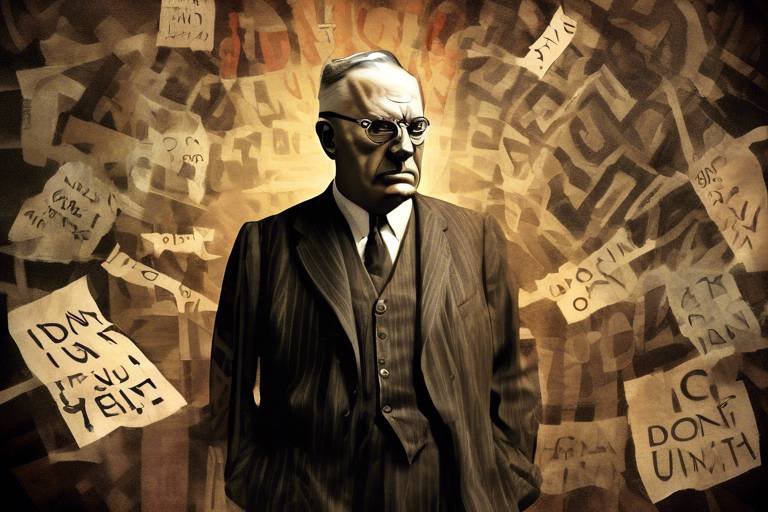Is Liberty The Core of John Locke's Philosophy?
When we dive into the philosophical ocean that is John Locke, we quickly realize that liberty is not just a ripple; it's the very wave that shapes his entire doctrine. Locke, a 17th-century thinker, is often heralded as one of the founding fathers of modern democracy, and his ideas about liberty are the cornerstone of his philosophy. But what exactly does he mean by liberty, and why is it so crucial to his views on government, individual rights, and the social contract? In this article, we will explore these questions and uncover the profound implications of Locke's thoughts on liberty, which resonate even in today's political landscape.
Locke's conception of liberty is multifaceted, encompassing not only the absence of restraint but also the presence of rights that empower individuals to act freely. He argues that every person is born with inherent rights, and these rights include the freedom to think, speak, and pursue happiness without undue interference. Think of liberty as the air we breathe; it’s essential for our existence and well-being. Without liberty, society becomes stifled, much like a plant deprived of sunlight. This fundamental right is not merely a philosophical abstraction for Locke; it is the foundation upon which he builds his arguments for governance and civil society.
In Locke's view, the social contract is a pivotal concept that intertwines liberty with governance. He posits that individuals enter into a social contract to form a government that protects their natural rights—life, liberty, and property. This agreement is not a surrender of freedom but rather a mutual understanding that enhances individual liberty by establishing a framework for order and justice. Imagine a group of friends deciding to play a game; they agree on rules that everyone follows, which allows them to enjoy the game without chaos. Similarly, Locke's social contract is designed to create a structured society where liberty can thrive, safeguarded by the rule of law.
Locke's assertion that individuals have the right to revolt against unjust governments further emphasizes the centrality of liberty in his philosophy. He believed that if a government fails to protect the rights of its citizens, those citizens are justified in rising against it. This revolutionary idea was radical for its time and laid the groundwork for future democratic movements. It’s as if Locke handed individuals a metaphorical sword, empowering them to defend their liberties against tyranny. This notion not only champions personal freedom but also reinforces the idea that government derives its legitimacy from the consent of the governed.
Moreover, Locke's influence extends beyond the realm of political theory into the very fabric of modern democratic thought. His ideas about liberty have permeated various aspects of governance, shaping contemporary views on individual rights, civil liberties, and the limits of state power. In many ways, Locke can be seen as a beacon of freedom, illuminating the path toward a society where individual rights are respected and protected. His legacy is evident in the foundational documents of many democratic nations, where liberty is enshrined as a fundamental principle.
As we reflect on Locke's philosophy, it becomes clear that liberty is not merely a concept; it is the essence of what it means to be human. It is the driving force behind our aspirations, our dreams, and our quest for justice. In a world where the struggle for freedom continues, Locke's insights remind us of the importance of protecting our liberties and the responsibilities that come with them. So, is liberty the core of John Locke's philosophy? Absolutely! It is the heart that beats within his writings, urging us to cherish and defend our freedom.
- What are John Locke's main ideas about liberty? Locke believed that liberty is a natural right and essential for individual autonomy. He argued that individuals have the freedom to act as they choose, as long as they do not infringe on the rights of others.
- How does Locke's social contract theory relate to liberty? Locke's social contract theory posits that individuals consent to form a government to protect their rights, including liberty. This contract is meant to enhance personal freedoms rather than restrict them.
- What is the significance of the right to revolt in Locke's philosophy? The right to revolt is crucial in Locke's philosophy as it empowers individuals to challenge unjust governments, ensuring that liberty is upheld and protected.
- How does Locke's view of liberty influence modern democracy? Locke's emphasis on individual rights and limited government has profoundly impacted modern democratic thought, shaping the principles of civil liberties and human rights.
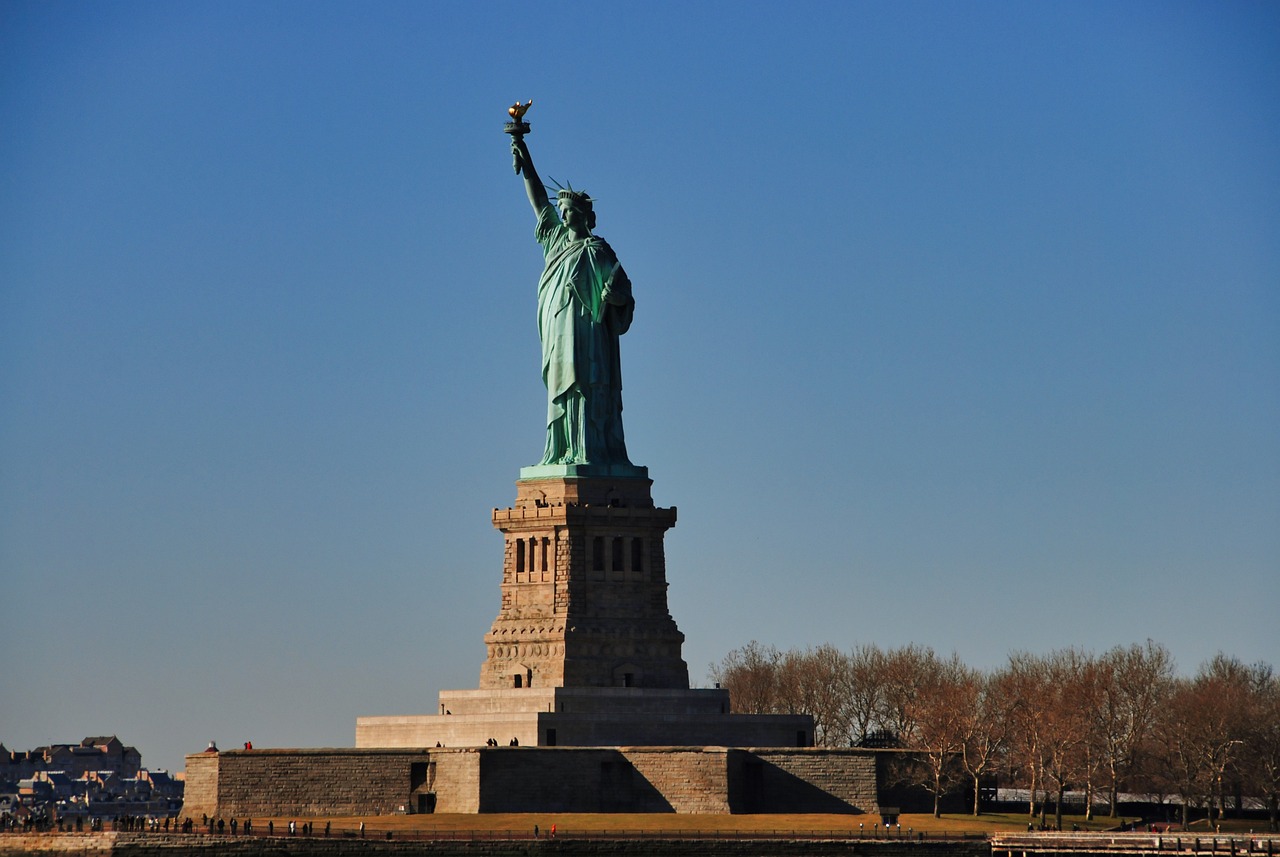
The Concept of Liberty in Locke's Works
John Locke, one of the most influential thinkers of the Enlightenment, places liberty at the heart of his philosophical discourse. To him, liberty is not just a concept; it is a fundamental human right that every individual is entitled to. In his seminal work, "Two Treatises of Government," Locke articulates a vision of liberty that goes beyond mere freedom from oppression. He defines liberty as the ability to act according to one's own will, as long as it does not infringe upon the rights of others. This interpretation is crucial because it lays the groundwork for his theories on governance and individual rights.
Locke's perspective on liberty is multi-faceted. He differentiates between natural liberty and civil liberty. Natural liberty refers to the state of being free from outside interference, while civil liberty is the freedom that individuals enjoy within the framework of a governed society. For Locke, the transition from natural to civil liberty is facilitated through the social contract, where individuals agree to form a government that protects their rights. This government, however, derives its authority from the consent of the governed, which reinforces the idea that liberty is not just a personal attribute but a collective societal value.
Moreover, Locke argues that the essence of liberty is intertwined with the concept of property. He famously states that "every man has a property in his own person," which means that individuals have the right to control their own lives and the fruits of their labor. This notion of property extends to include not just physical possessions but also personal autonomy and the right to pursue happiness. In Locke's view, the protection of property is a primary function of government, further solidifying the link between liberty and individual rights.
In exploring Locke's ideas, one cannot overlook the implications of his views on liberty for modern political thought. His advocacy for individual rights and limited government has laid the foundation for contemporary democratic systems. To illustrate this, consider the following table that summarizes key aspects of Locke's concept of liberty:
| Aspect | Description |
|---|---|
| Natural Liberty | Freedom from external constraints and interference. |
| Civil Liberty | Freedom within the constraints of a governed society. |
| Property Rights | The right to own and control one's possessions and self. |
| Social Contract | An agreement among individuals to form a government that protects their rights. |
This table not only encapsulates Locke's thoughts but also serves as a reminder of how deeply his ideas resonate in today's discussions about freedom and individual rights. Whether we are debating civil liberties or the role of government, Locke's insights remain a cornerstone of our understanding of liberty.
In conclusion, the concept of liberty in Locke's works is not merely a philosophical abstraction; it is a vital principle that informs our understanding of rights, governance, and personal freedom. His ideas challenge us to reflect on the nature of our own liberties and the responsibilities that come with them. As we navigate the complexities of modern society, Locke's emphasis on liberty as a fundamental human right continues to inspire and provoke thought, making it a timeless topic worthy of exploration.
- What is John Locke's definition of liberty? Locke defines liberty as the ability to act according to one's own will, provided it does not infringe upon the rights of others.
- How does Locke's concept of liberty relate to property? Locke argues that individuals have a natural right to their own property, which includes both physical possessions and personal autonomy.
- What role does the social contract play in Locke's philosophy? The social contract is an agreement among individuals to form a government that protects their rights, thereby transitioning from natural to civil liberty.

Locke's Social Contract Theory
John Locke's social contract theory is a cornerstone of his political philosophy, intricately weaving the concept of liberty into the fabric of governance. At its core, this theory posits that individuals consent, either explicitly or implicitly, to form a government that is tasked with protecting their natural rights—namely, life, liberty, and property. But what does this really mean? Imagine a scenario where individuals in a state of nature come together to create a society. They agree to surrender some of their freedoms in exchange for the protection and security provided by a governing body. This mutual agreement establishes a social contract, which is not just a simple handshake but a profound commitment to uphold the principles of liberty and justice.
Locke argues that the legitimacy of any government hinges on its ability to protect the rights of its citizens. If a government fails in this duty or becomes tyrannical, Locke asserts that the people have the right to revolt. This revolutionary idea places liberty at the heart of political authority. It emphasizes that the government is not a ruler over the people but rather their servant, created to ensure the flourishing of individual freedoms. In this sense, the social contract is not merely a theoretical construct; it is a living agreement that demands active participation and vigilance from the citizens.
To better understand this relationship, let’s break down the key elements of Locke's social contract theory:
- Consent: Individuals must willingly agree to form a government.
- Protection of Rights: The government’s primary role is to safeguard the natural rights of its citizens.
- Right to Revolt: If the government fails to protect these rights, citizens have the right to overthrow it.
Locke’s ideas laid the groundwork for modern democracy, where the principles of liberty and individual rights are paramount. His social contract theory not only highlights the importance of personal freedom but also reinforces the notion that political authority must be derived from the consent of the governed. This revolutionary perspective has influenced countless democratic movements around the world, urging individuals to stand up for their rights and hold their governments accountable.
In essence, Locke’s social contract theory serves as a powerful reminder that liberty is not just a personal privilege but a collective responsibility. It calls for active engagement in the political process, urging individuals to be vigilant in protecting their freedoms and those of others. As we navigate the complexities of modern governance, Locke’s insights continue to resonate, reminding us that the essence of a just society lies in the delicate balance between liberty and authority.
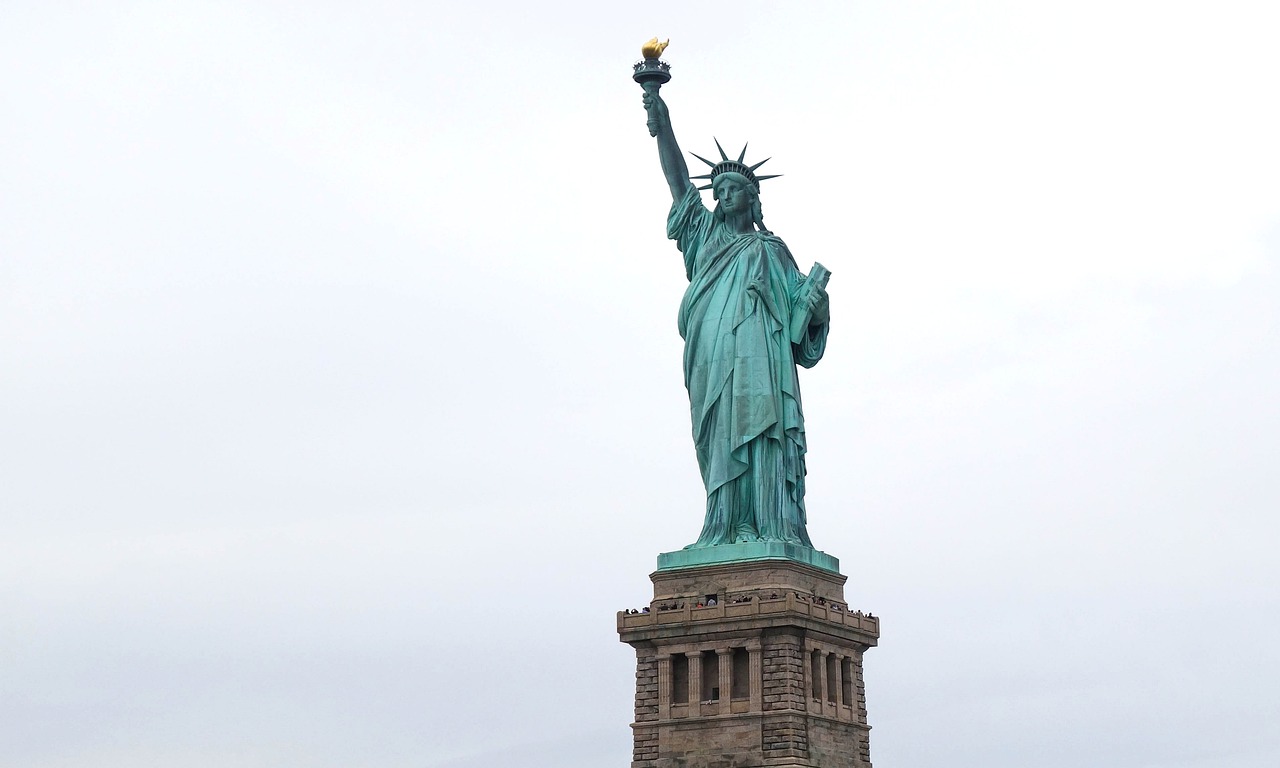
Natural Rights and Individual Freedom
When we dive into John Locke's philosophy, one of the most striking aspects is his unwavering belief in natural rights. These rights, which Locke identifies as life, liberty, and property, are not just abstract concepts but are fundamental to his understanding of human existence. Imagine living in a world where you are free to pursue your dreams, express your thoughts, and own what you earn. This is the essence of individual freedom in Locke's eyes. He argues that these rights are inherent to every person, bestowed not by any government or authority, but simply by being human.
Locke's view of natural rights is like a sturdy foundation upon which the entire structure of his political theory rests. He posits that the primary role of government is to protect these rights. If a government fails in this duty, it loses its legitimacy, and citizens are justified in seeking change. This idea resonates powerfully in contemporary discussions about the role of government. After all, who wants to live under a regime that disregards their basic freedoms?
To understand this further, let's break down the relationship between natural rights and individual freedom:
- Life: The right to live is the most basic of all rights. It asserts that every individual has the inherent right to exist and flourish.
- Liberty: This encompasses not just the freedom to act but also the freedom to think and express oneself. Locke champions the idea that individuals should have the autonomy to make choices without undue interference.
- Property: For Locke, property is an extension of individual freedom. It is not merely about material possessions but about the fruits of one's labor and the ability to sustain oneself.
Locke's emphasis on these natural rights highlights a crucial aspect of his philosophy: the idea that individual freedom is not just a privilege but a right that must be protected. This perspective challenges us to consider how our own rights are safeguarded in modern society. Are we truly free if our rights can be easily violated? Locke's philosophy invites us to reflect on these questions and to recognize the importance of defending our freedoms against any encroachments.
Moreover, Locke's framework suggests that individual freedom is not just about personal autonomy; it also encompasses a sense of responsibility towards others. In a society where everyone respects each other's natural rights, a harmonious coexistence is possible. This idea lays the groundwork for a social contract where individuals agree to form a government that upholds these rights, creating a balance between liberty and order.
In conclusion, Locke's insights into natural rights and individual freedom remain incredibly relevant today. They challenge us to advocate for our rights and the rights of others, ensuring that liberty is not just a theoretical concept but a lived reality. As we navigate the complexities of modern governance and societal norms, Locke's philosophy serves as a powerful reminder of the importance of protecting our natural rights as the cornerstone of a just and free society.
- What are natural rights according to John Locke?
Natural rights, as defined by Locke, are life, liberty, and property. He believes these rights are inherent to all individuals and must be protected by government. - How does Locke's philosophy influence modern democracy?
Locke's ideas about individual rights and the role of government have laid the foundation for contemporary democratic principles, emphasizing the importance of protecting citizens' freedoms. - What is the significance of the right to revolt in Locke's philosophy?
Locke argues that individuals have the right to revolt against unjust governments, reinforcing the idea that liberty is essential for protecting natural rights.

The Right to Revolt
John Locke's philosophy is not just a collection of abstract ideas; it's a call to action, particularly when it comes to the concept of the right to revolt. In his seminal work, Two Treatises of Government, Locke argues that individuals have not only the right but also the duty to revolt against unjust governments. This notion is deeply intertwined with his understanding of liberty and the protection of natural rights. But what exactly does this mean for us today?
Locke posits that the primary purpose of government is to protect the natural rights of its citizens—namely, life, liberty, and property. When a government fails to uphold these rights, or worse, actively infringes upon them, it loses its legitimacy. In Locke's eyes, people are not merely passive subjects; they are active participants in their governance. This idea resonates with many, as it empowers individuals to stand against tyranny. Imagine living in a society where your rights are routinely violated—wouldn't you feel compelled to rise up? Locke believed that the answer is a resounding yes.
To further illustrate Locke's argument, we can break down the implications of the right to revolt into several key points:
- Legitimacy of Government: A government is legitimate only if it protects the rights of its citizens. If it fails to do so, it forfeits its authority.
- Collective Responsibility: The right to revolt is not just an individual right; it is a collective responsibility. Citizens must unite to challenge oppressive regimes.
- Morality of Revolt: Locke frames revolt not as a mere act of rebellion but as a moral imperative when faced with injustice.
Locke’s advocacy for the right to revolt can be seen as a precursor to modern democratic movements. His ideas inspired countless revolutions, including the American Revolution, where the colonists felt justified in their struggle against British rule. They believed that their rights were being trampled upon, and Locke’s philosophy provided the intellectual backbone for their quest for freedom. The echoes of his thoughts can still be heard in contemporary discussions about civil disobedience and the moral justification for challenging authority.
However, it’s essential to approach this concept with caution. The right to revolt is not a blanket license for chaos; it requires a thoughtful and measured response to tyranny. Locke emphasizes that revolts should be the last resort, undertaken only after all other avenues for redress have been exhausted. This principle serves as a reminder that while liberty is a fundamental right, it must be exercised responsibly.
In conclusion, Locke’s notion of the right to revolt is a powerful assertion of individual liberty and collective responsibility. It challenges us to consider the balance between authority and freedom, urging us to remain vigilant in defending our rights. As we navigate the complexities of modern governance, Locke’s insights remind us that the struggle for liberty is an ongoing journey, one that requires both courage and commitment.
- What is the right to revolt according to Locke?
Locke argues that citizens have the right to revolt against a government that fails to protect their natural rights. - Is the right to revolt applicable today?
Yes, many modern democratic movements draw inspiration from Locke's philosophy, advocating for the protection of individual rights against oppressive regimes. - How does Locke justify the right to revolt?
Locke believes that when a government becomes tyrannical, it loses its legitimacy, and citizens have a moral obligation to challenge it.
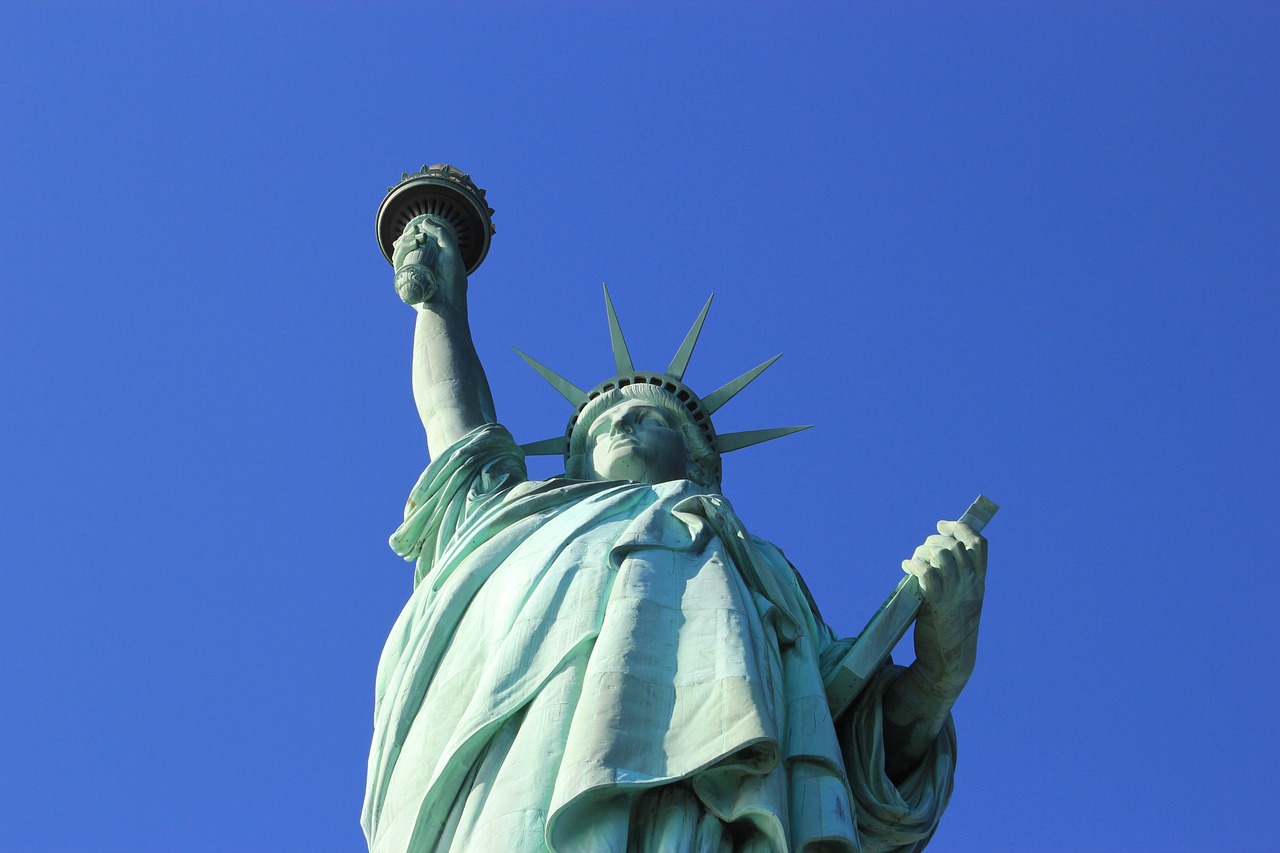
Influence on Modern Democracy
John Locke's philosophical ideas, particularly his views on liberty, have had a profound and lasting impact on the development of modern democratic thought. His assertion that individuals possess inherent rights—namely life, liberty, and property—has become a cornerstone of democratic ideology. In fact, these ideas laid the groundwork for the democratic principles that many nations uphold today. But how exactly did Locke influence the way we think about democracy? Well, let's break it down.
First and foremost, Locke's concept of the social contract is essential in understanding the relationship between the government and the governed. He argued that legitimate governmental authority is derived from the consent of the people. This notion is echoed in modern democratic systems where the government's power is contingent upon the will of the citizens. If a government fails to protect the rights of its citizens, Locke posited that the people have not just the right, but the duty to revolt. This radical idea not only empowers individuals but also serves as a check on governmental power, ensuring that leaders remain accountable to the populace.
Moreover, Locke's emphasis on individual rights has shaped the frameworks of numerous democratic constitutions around the world. Take, for instance, the United States Declaration of Independence, which echoes Locke's sentiments by stating that all men are created equal and endowed with certain unalienable rights. The influence is clear: Locke's philosophical musings on liberty and governance have been woven into the very fabric of democratic societies.
Locke's ideas about toleration and the separation of church and state also resonate strongly in modern democracies. He believed that individuals should have the freedom to practice their religion without interference from the government, a principle that prevents the rise of tyrannical rule based on religious dogma. This idea has been pivotal in establishing pluralistic societies where diverse beliefs can coexist, fostering a culture of respect and understanding.
To illustrate the impact of Locke's philosophy on modern democracy, consider the following table that summarizes key elements:
| Locke's Concept | Modern Democratic Principle |
|---|---|
| Natural Rights | Human Rights |
| Social Contract | Consent of the Governed |
| Right to Revolt | Checks and Balances |
| Religious Toleration | Freedom of Religion |
In conclusion, Locke's ideas on liberty not only influenced the philosophical underpinnings of modern democracy but also provided a framework for the rights and responsibilities of citizens within a democratic society. His thoughts continue to inspire movements for freedom and justice around the globe, reminding us that the quest for liberty is a timeless pursuit. As we navigate the complexities of contemporary governance, Locke's insights remain relevant, urging us to cherish and uphold the principles of democracy that empower individuals and protect their rights.
- What is John Locke's main contribution to political philosophy?
Locke's main contribution is his theory of natural rights and the social contract, which emphasizes the importance of individual liberty and government accountability. - How did Locke influence the American Revolution?
Locke's ideas about the right to revolt against unjust governance inspired many American revolutionaries, leading to the establishment of a government based on the consent of the governed. - What is the significance of the social contract in Locke's philosophy?
The social contract is significant because it establishes that legitimate government authority arises from the consent of the people, which is a foundational principle of modern democracy. - How does Locke's view on religious toleration impact modern society?
Locke's advocacy for religious toleration promotes a pluralistic society where individuals can practice their beliefs freely, fostering respect and coexistence among diverse groups.
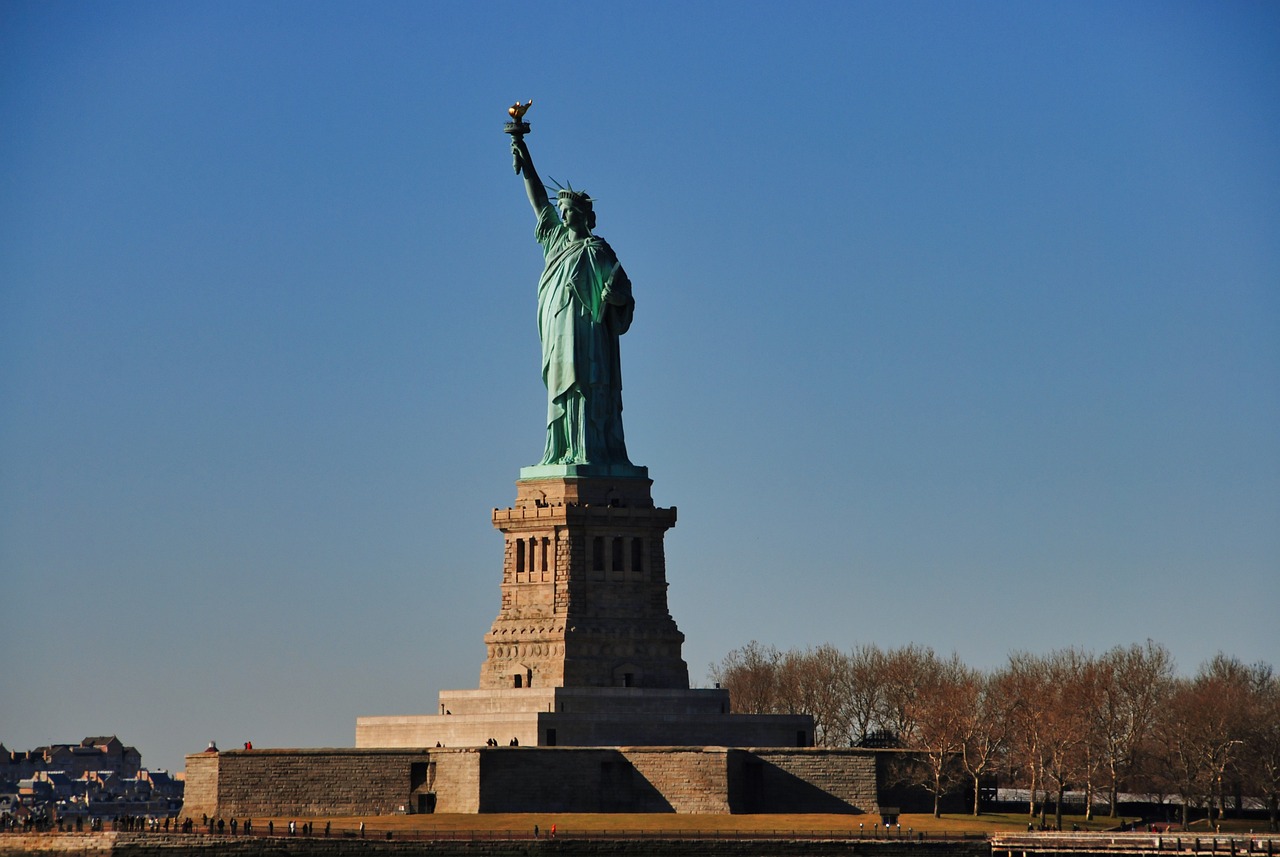
Liberty and Toleration
In the realm of philosophy, few concepts are as intertwined as liberty and toleration. For John Locke, these ideas are not just complementary; they are essential to the fabric of a just society. Locke argued that true liberty cannot exist without the ability to tolerate differing beliefs and practices. Imagine a world where everyone thought the same—how dull and oppressive that would be! Locke's vision was far more vibrant; he envisioned a society where individuals could express their beliefs freely, without fear of persecution.
Locke's emphasis on toleration is particularly significant in the context of religious freedom. He believed that the government should not interfere in matters of personal belief, as faith is a deeply personal journey. In his famous work, "A Letter Concerning Toleration," Locke argued that forcing someone to adhere to a particular belief not only violates their liberty but also undermines the very essence of faith. After all, if belief is coerced, can it truly be genuine?
To illustrate Locke's perspective, consider this: if a government were to mandate a single religion, it would not only infringe on individual rights but also create a society rife with conflict. Instead, Locke championed a pluralistic society where diverse beliefs coexist. This idea can be summarized in a few key points:
- Individual Autonomy: Each person has the right to choose their beliefs.
- Social Harmony: A tolerant society fosters peace and cooperation among its citizens.
- Government Neutrality: The state should remain neutral in matters of religion.
Locke's advocacy for toleration extends beyond religion; it encompasses all forms of belief and expression. He understood that a society enriched by diverse perspectives is more robust and dynamic. This principle of toleration is not merely an abstract concept; it has practical implications for governance and social interaction. In modern democracies, we see echoes of Locke's philosophy in laws that protect freedom of speech and the right to assemble. These rights are vital for ensuring that individuals can express their opinions without fear of retribution.
However, Locke's ideas are not without their challenges. The balance between liberty and toleration can sometimes lead to complex dilemmas. For instance, how do we handle beliefs that advocate intolerance? Locke himself grappled with this issue, suggesting that while liberty is paramount, it should not extend to actions that threaten the rights of others. This delicate balance continues to be a topic of debate in contemporary society, as we navigate the murky waters of free speech and hate speech.
In conclusion, Locke's vision of liberty intertwined with toleration presents a powerful framework for understanding individual rights in a diverse society. His insistence on the importance of tolerance as a cornerstone of liberty encourages us to embrace differences rather than fear them. As we reflect on Locke's contributions, we are reminded that true freedom is not just about the absence of restraint; it is about creating an environment where all voices can be heard and respected. In today's world, where polarization is rampant, Locke's call for toleration is more relevant than ever, urging us to foster a culture of understanding and acceptance.
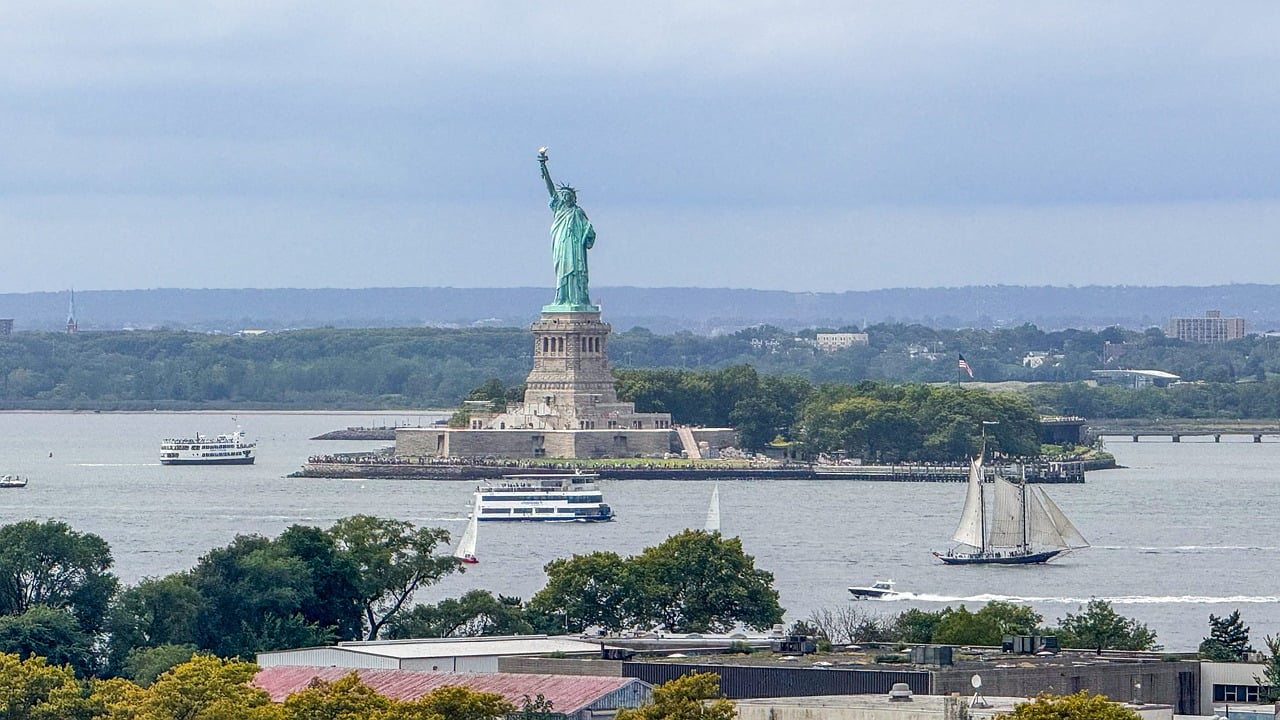
Critiques of Locke's Libertarianism
John Locke's libertarianism, while celebrated for its foundational role in modern political thought, has not escaped scrutiny. Critics argue that his interpretation of liberty is overly simplistic and fails to account for the complexities of human society. One major critique revolves around the notion that Locke's theories primarily reflect the interests of a specific demographic—namely, white, property-owning men. This raises questions about the universality of his ideas and whether they adequately represent the rights and freedoms of all individuals.
Moreover, Locke's emphasis on individual rights can sometimes overshadow the importance of community and social responsibility. Critics argue that by prioritizing personal liberty, Locke inadvertently promotes a form of individualism that can lead to social fragmentation. This perspective suggests that a society built solely on the principles of individual liberty might neglect the collective well-being, leading to a lack of cohesion and support among its members.
Another significant critique comes from feminist theorists who highlight the absence of women's rights in Locke's framework. They argue that his theories are often gender-blind, failing to recognize the unique challenges women face in asserting their liberties. For instance, while Locke champions the right to property as a core aspect of liberty, feminist critiques point out that historically, women have been systematically excluded from property ownership. This exclusion raises important questions about how liberty is defined and who gets to enjoy it.
Additionally, Marxist perspectives offer a contrasting view of Locke's notion of property. For Marxists, property is not merely an extension of individual liberty but a source of inequality and exploitation. They argue that Locke's framework promotes a capitalist ideology that prioritizes individual ownership at the expense of collective welfare. In this light, the right to property can be seen as a barrier to true freedom for those who lack economic resources, thereby perpetuating class divisions and social injustice.
To encapsulate these critiques, it’s essential to recognize that while Locke's philosophy has laid the groundwork for discussions about liberty, it is not without its limitations. The ongoing debates surrounding his ideas reflect the evolving understanding of freedom in contemporary society. As we navigate these discussions, it becomes increasingly clear that a comprehensive approach to liberty must consider the diverse experiences and rights of all individuals, rather than adhering strictly to a singular, often exclusionary, interpretation.
- What are the main critiques of Locke's libertarianism?
Critiques include its exclusion of women's rights, its focus on individualism at the expense of community, and Marxist critiques of property as a source of inequality.
- How does feminist theory challenge Locke's views?
Feminist theorists argue that Locke's framework fails to consider the unique challenges faced by women, particularly regarding property rights and social equality.
- Why do Marxists critique Locke's notion of property?
Marxists contend that Locke's emphasis on property perpetuates class divisions and social injustice, viewing property as a barrier to collective freedom rather than a facilitator of individual liberty.
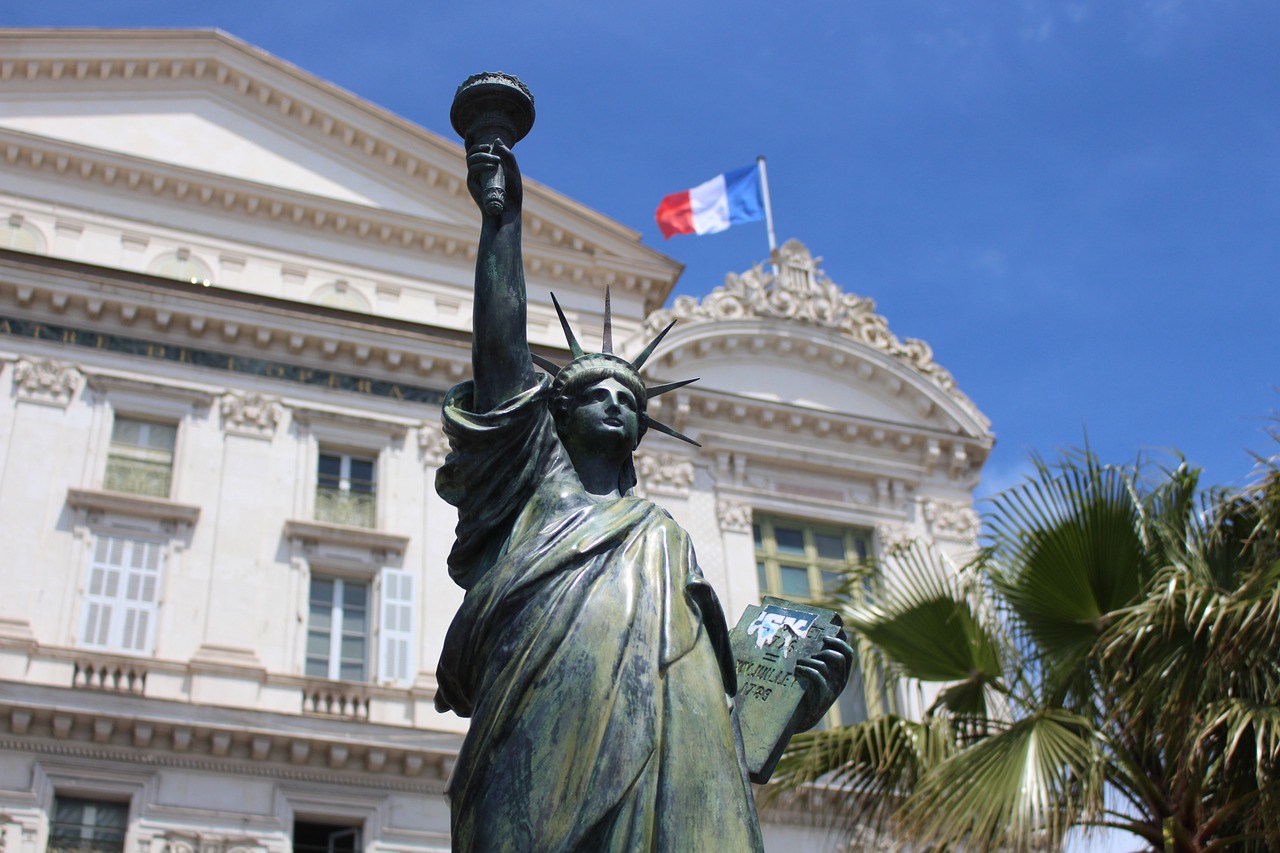
Feminist Critiques
Feminist critiques of John Locke's philosophy often highlight a significant oversight in his conceptualization of liberty, particularly regarding the rights and experiences of women. While Locke eloquently articulates the principles of life, liberty, and property, his framework tends to reflect a male-centric perspective that overlooks the realities faced by women in both public and private spheres. This exclusion raises critical questions: Can a philosophy that neglects half of the population truly represent universal liberty? Is it justifiable to claim that Locke's theories provide a comprehensive understanding of freedom when they fail to address women's rights?
One of the primary arguments presented by feminist theorists is that Locke's notion of the social contract is inherently biased. The social contract, as Locke describes it, is an agreement among men, often excluding women from its provisions. This exclusion leads to a situation where women's rights are not recognized as natural rights, which in turn diminishes their status in society. Feminists argue that this oversight perpetuates a system of inequality, where women's contributions—both in the household and in the workforce—are undervalued and often ignored.
Moreover, feminist critiques emphasize that Locke's focus on property rights further complicates the notion of liberty for women. In a society where property ownership is a key determinant of power and status, the historical exclusion of women from property rights creates a significant barrier to their freedom. The relationship between property and liberty in Locke's philosophy can therefore be seen as a double-edged sword; while it champions individual rights, it simultaneously reinforces existing inequalities, particularly those based on gender.
To illustrate this point, consider the following table that contrasts Locke's views with feminist perspectives:
| Aspect | Locke's View | Feminist Critique |
|---|---|---|
| Social Contract | Agreement among men | Excludes women, reinforcing gender inequality |
| Natural Rights | Life, liberty, property | Ignores women's rights and experiences |
| Property Rights | Essential for liberty | Excludes women from ownership, limiting their freedom |
In light of these critiques, it becomes clear that while Locke's philosophy laid the groundwork for modern notions of liberty, it requires a re-examination through a feminist lens. This perspective not only broadens our understanding of liberty but also challenges us to consider whose voices are included in the discourse on rights and freedoms. Feminist theorists advocate for a more inclusive approach, one that recognizes the diverse experiences of all individuals and ensures that liberty is not just a privilege for some, but a universal right.
Ultimately, the feminist critique of Locke serves as a reminder that the quest for liberty is ongoing. It urges us to interrogate the foundational ideas of our political systems and to strive for a more equitable society where every voice is heard and valued. By recognizing the limitations of Locke's philosophy, we can work towards a more comprehensive understanding of liberty—one that embraces diversity and inclusivity.
- What are the main feminist critiques of Locke's philosophy? Feminist critiques focus on the exclusion of women's rights from Locke's social contract and the implications of property rights on women's freedom.
- How does Locke's view of liberty impact women's rights? Locke's emphasis on property and individual rights often neglects women's experiences and contributions, leading to systemic inequalities.
- Why is it important to consider feminist perspectives on liberty? Including feminist perspectives ensures a more holistic understanding of liberty that encompasses the rights and experiences of all individuals, not just a select few.
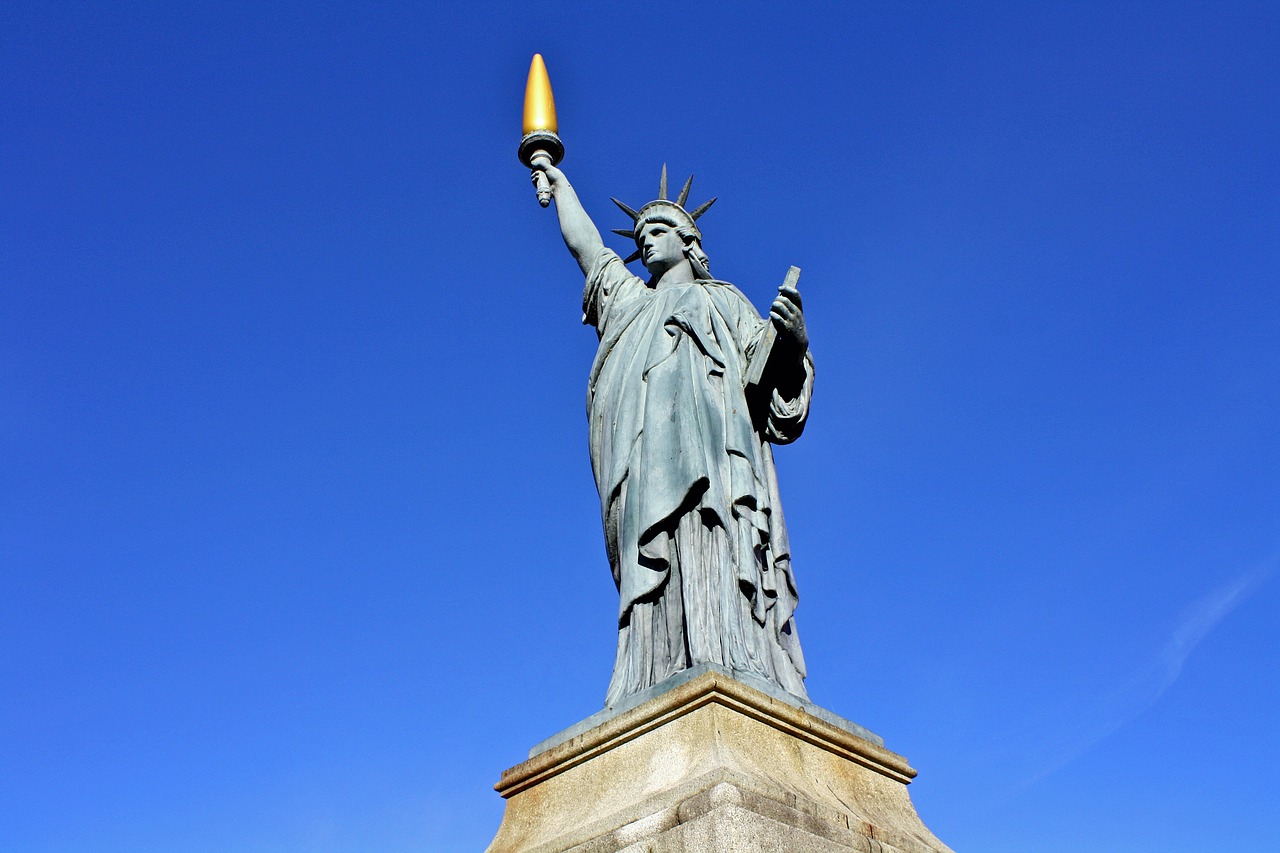
Marxist Perspectives
Marxist thinkers have long critiqued John Locke's conception of liberty, particularly as it relates to property. For Locke, property is a natural extension of individual liberty; it is not merely about ownership but is intricately linked to one's freedom and identity. However, Marxists argue that this perspective is fundamentally flawed. They contend that Locke's emphasis on property rights creates a society that prioritizes individual ownership over collective well-being, leading to social inequalities that undermine the very liberty Locke champions.
At the heart of the Marxist critique is the idea that Locke's framework supports a capitalist system, which inherently fosters class divisions. By promoting the notion that property is a natural right, Locke inadvertently legitimizes the accumulation of wealth in the hands of a few, while the majority remain disenfranchised. This contradiction raises an essential question: can true liberty exist in a society where wealth and resources are concentrated among a small elite?
To illustrate this point, consider the following table that contrasts Locke's and Marx's views on property and liberty:
| Aspect | Locke's View | Marx's View |
|---|---|---|
| Nature of Property | Natural right linked to individual liberty | Social construct that should be collectively owned |
| Impact on Society | Encourages individualism and personal freedom | Creates class divisions and social inequality |
| Role of Government | Protects property rights | Redistributes wealth and resources |
Furthermore, Marxists argue that Locke's framework neglects the social dimensions of liberty. They assert that true freedom cannot be achieved in isolation; rather, it requires a communal approach where resources are shared, and everyone has equal access to opportunities. This perspective emphasizes the interconnectedness of individuals within society and posits that liberty is not just about personal rights but also about collective responsibility.
In this context, the Marxist critique of Locke serves as a powerful reminder of the complexities surrounding the concept of liberty. While Locke's ideas laid the groundwork for modern liberal thought, they also opened the door for debates about the role of property, economic systems, and social justice. Consequently, the discussion surrounding liberty continues to evolve, reflecting the diverse perspectives that shape our understanding of freedom in contemporary society.
- What is the main critique of Locke's views on liberty from a Marxist perspective?
Marxists argue that Locke's emphasis on property rights leads to social inequality and class divisions, undermining the concept of true liberty.
- How do Marxists define liberty differently than Locke?
Marxists see liberty as a collective right that requires shared ownership and resources, contrasting with Locke's focus on individual property rights.
- Why is the concept of property important in this debate?
Property is central to Locke's definition of liberty, while Marxists argue that it perpetuates inequality, thus complicating the notion of freedom.
Frequently Asked Questions
- What is the core idea of liberty in John Locke's philosophy?
Liberty, for Locke, is a fundamental human right that allows individuals to act according to their own will, as long as they do not infringe on the rights of others. It's about the freedom to live one's life without undue interference, which he believed was essential for personal development and happiness.
- How does Locke's social contract theory relate to liberty?
Locke's social contract theory posits that individuals consent to form a government to protect their natural rights, including liberty. This agreement implies that the government's legitimacy hinges on its ability to safeguard these rights, and if it fails, the people have the right to revolt.
- What are Locke's views on natural rights?
Locke argued that individuals inherently possess natural rights to life, liberty, and property. These rights are not granted by any authority but are intrinsic to being human. He believed that protecting these rights is the primary role of government.
- Why does Locke advocate for the right to revolt?
Locke believed that if a government becomes tyrannical and fails to protect the rights of its citizens, individuals have the right to revolt. This idea underscores the importance of liberty, as it empowers people to defend their freedoms against oppression.
- How has Locke influenced modern democracy?
Locke's ideas about liberty and governance have greatly shaped modern democratic principles. His emphasis on individual rights and the notion that government derives its power from the consent of the governed are foundational to contemporary democratic thought.
- What role does religious toleration play in Locke's concept of liberty?
Locke viewed religious toleration as a critical aspect of liberty. He argued that individuals should be free to practice their religion without interference, as this freedom contributes to a more peaceful and harmonious society.
- What critiques exist regarding Locke's interpretation of liberty?
Locke's philosophy has faced various critiques, particularly concerning its applicability to all individuals. Some argue that his views often exclude women's rights and experiences, while others, like Marxists, challenge his ideas on property and its relation to liberty.
- How do feminist theorists critique Locke's ideas?
Feminist theorists point out that Locke's concepts of liberty often overlook women's rights and experiences. They argue that his framework does not adequately address the social and economic inequalities that women face, making it incomplete in understanding true liberty.
- What are Marxist perspectives on Locke's notion of property?
Marxist thinkers criticize Locke's view of property as an extension of liberty, arguing that it promotes individualism at the expense of collective ownership. They contend that this perspective creates tensions between the rights of individuals and the needs of the community as a whole.



